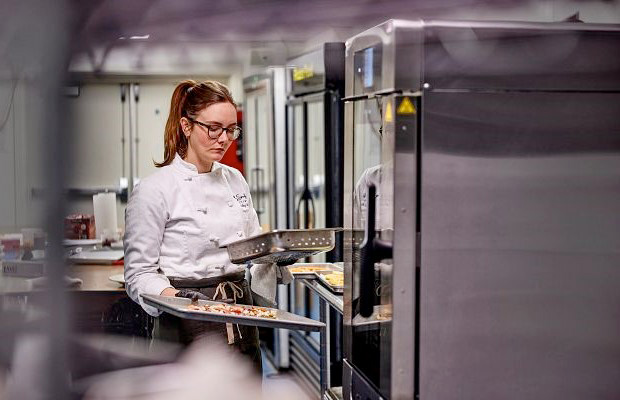 Almost a fifth of foodservice businesses are losing around $400 a week due to food waste, totalling over $20,800 annually per restaurant. Twenty percent of U.S restaurant owners believe not enough is being done to reduce industry food waste, Alto-Shaam research reveals
Almost a fifth of foodservice businesses are losing around $400 a week due to food waste, totalling over $20,800 annually per restaurant. Twenty percent of U.S restaurant owners believe not enough is being done to reduce industry food waste, Alto-Shaam research reveals
Twenty percent of U.S restaurant owners say that not enough is being done to reduce food waste in the catering industry, new research by Alto-Shaam, commercial kitchen equipment innovator, has revealed.
The survey, conducted among commercial restaurant owners and purchasing decision-makers in the U.S., found that a majority (83%) are either exploring or already implementing strategies to reduce food waste in their kitchens. Despite these efforts, almost a fifth (16%) are losing around $400 a week due to food waste, totalling over $20,800 annually per restaurant.
Going into 2024, U.S. restaurant businesses have a significant opportunity to enhance their financial and environmental impacts by implementing strategies aimed at reducing food wastage.
Uncovering the food waste initiatives currently being prioritized by leaders in the restaurant industry, the survey found the most common initiatives being implemented include:
- Employee training – 44%
- Creative use of leftovers – 40%
- Food waste tracking software – 37%
- Sustainable sourcing – 36%
- Regular menu audits – 35%
Reports show the restaurant industry spends an estimated $162 billion every year in costs related to wasted food. Combining food waste from restaurants with grocery stores, and food service companies, commercial food waste contributes to greenhouse emissions equating to an equivalent of 14.8 million cars. Furthermore, all food waste in the US combined is the equivalent of the greenhouse emissions of 37 million cars.
Lucy McQuillan, President at Alto-Shaam comments, “Navigating all operations efficiently amid the complexities of our current tough and unpredictable economy is no easy feat. Nevertheless, it's impressive to see that most restaurants are taking commendable steps to implement strategies aimed at reducing food wastage.
“It’s important that the catering and restaurant industry work together to battle these sustainability issues, which is why we want to help leaders and businesses in our industry to improve their sustainability efforts, which will have the knock-on benefit of improved profitability.”
McQuillan continues, “We’re proud to be developing technology and equipment that contributes to this positive movement. Halo Heat® technology is one example that uses little energy yet allows chefs to hold food longer, without drying out food and having to throw it away.”
Read Alto-Shaam's full report and discover professionally recommended methods to reduce your food wastage and improve profitability.



